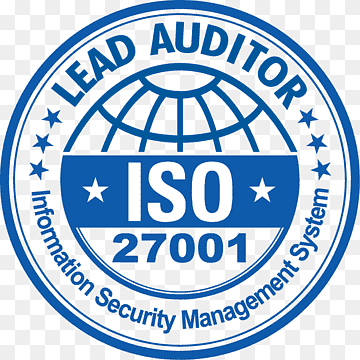Importance of Quality Assurance in Various Industries:
This section highlights the significance of quality assurance practices across different sectors, emphasizing how they contribute to ensuring product and service quality, customer satisfaction, and regulatory compliance. It may discuss examples of industries where quality assurance is crucial, such as healthcare, manufacturing, software development, and food production.
-
Overview of the Article’s Focus:
Here, the article briefly outlines the main topics it will cover related to getting a job in quality assurance. It sets the stage for what readers can expect, including discussions on essential skills, qualifications, gaining experience, networking, job search strategies, interview preparation, and continued professional development.
Understanding Quality Assurance
-
Definition and Scope of Quality Assurance:
This section defines quality assurance (QA) and provides an overview of its scope. It explains that QA is a systematic process implemented to ensure that products or services meet specified requirements and standards. It may include aspects such as process improvement, risk management, and adherence to regulatory requirements.
-
Key Principles and Objectives of Quality Assurance:
Here, the article discusses the fundamental principles that guide quality assurance practices. These principles may include continuous improvement, customer focus, prevention over detection, and data-driven decision-making. Additionally, it outlines the primary objectives of QA, such as identifying and mitigating risks, enhancing product quality, and ensuring compliance with industry standards and regulations.
Skills and Qualifications
-
Essential Skills for a Career in Quality Assurance:
This section outlines the key skills necessary for success in a quality assurance role. It may include attention to detail, analytical thinking, problem-solving abilities, communication skills, teamwork, and proficiency in quality assurance tools and methodologies. Additionally, it might highlight the importance of critical thinking, time management, and adaptability in QA roles.
-
Educational Requirements and Certifications:
Here, the article discusses the typical educational background and certifications required to pursue a career in quality assurance. It may mention that while a bachelor’s degree in fields such as engineering, computer science, or business administration is often preferred, some positions may only require relevant experience or vocational training. Additionally, it may list certifications such as Certified Quality Engineer (CQE), Certified Software Quality Analyst (CSQA), or Six Sigma belts as valuable credentials for QA professionals.
Gaining Relevant Experience
-
Internships and Entry-Level Positions in Quality Assurance:
This section explores the importance of internships and entry-level positions for individuals seeking to gain practical experience in quality assurance. It may discuss how internships provide hands-on training and exposure to QA processes and tools, while entry-level positions offer opportunities to apply theoretical knowledge in real-world settings. Additionally, it may provide tips on how to secure internships or entry-level QA roles, such as networking, applying to relevant job postings, and showcasing relevant skills and experiences on resumes and during interviews.
-
Volunteer Work and Project Involvement to Gain Experience:
Here, the article discusses the value of participating in volunteer work or projects related to quality assurance. It may emphasize how volunteering for QA-related initiatives, such as testing open-source software projects or contributing to quality improvement projects in community organizations, can help individuals build practical skills, expand their professional network, and enhance their resume. Additionally, it may provide suggestions on finding volunteer opportunities, such as through online platforms, local organizations, or professional associations.
Networking and Professional Development
-
Joining Industry Organizations and Associations:
This section highlights the benefits of joining industry-specific organizations and associations for individuals interested in quality assurance careers. It may discuss how membership in such groups provides access to valuable resources, networking opportunities with professionals in the field, and opportunities for professional growth through workshops, conferences, and certifications. Additionally, it may offer guidance on selecting relevant organizations based on career goals, industry focus, and geographic location, as well as tips for actively participating in group activities and events.
-
Attending Conferences, Workshops, and Seminars:
Here, the article explores the importance of attending conferences, workshops, and seminars as part of ongoing professional development in quality assurance. It may discuss how these events offer opportunities to stay updated on industry trends, best practices, and emerging technologies, as well as to network with industry experts and peers. Additionally, it may provide guidance on selecting relevant events based on individual interests and career goals, as well as tips for maximizing the value of attendance, such as active participation in sessions, engaging with speakers and attendees, and sharing insights gained from the event with colleagues.
Building a Strong Resume and Cover Letter
-
Highlighting Relevant Skills and Experiences:
In this section, the article focuses on the importance of effectively showcasing relevant skills and experiences on a resume and cover letter. It may discuss how to identify and prioritize key skills and experiences that align with the requirements of quality assurance roles, such as attention to detail, analytical skills, problem-solving abilities, and knowledge of quality management systems. Additionally, it may offer guidance on how to effectively highlight these skills and experiences through concise and impactful language, quantifiable achievements, and relevant examples.
-
Tailoring Resume and Cover Letter for Each Job Application:
Here, the article provides insights into the importance of customizing resumes and cover letters for each job application to demonstrate a strong fit for the specific role and company. It may discuss strategies for tailoring application materials, such as thoroughly researching the company and job description, identifying keywords and phrases to incorporate, and aligning qualifications and experiences with the employer’s needs. Additionally, it may offer tips for crafting compelling cover letters that capture the reader’s attention, express genuine interest in the position and company, and highlight unique qualifications and contributions.
Preparing for Interviews
-
Common Interview Questions for Quality Assurance Roles:
In this section, the article outlines some of the typical interview questions that candidates may encounter when applying for quality assurance positions. It may include questions related to quality assurance principles and methodologies, problem-solving scenarios, experience with quality management systems, and examples of handling quality issues or audits. The article may also provide guidance on how to prepare responses to these questions, including practicing responses, providing specific examples from past experiences, and demonstrating relevant skills and knowledge.
-
Tips for Presenting Yourself Effectively During Interviews:
Here, the article offers practical advice for candidates to make a positive impression during interviews for quality assurance roles. It may cover various aspects of interview preparation, such as researching the company and role, dressing appropriately, arriving on time, and demonstrating professionalism and enthusiasm. Additionally, the article may provide tips for effective communication during interviews, including active listening, maintaining eye contact, speaking clearly and confidently, and asking insightful questions about the role and company. Finally, it may emphasize the importance of showcasing relevant skills, experiences, and accomplishments to demonstrate suitability for the position.
Searching for Job Opportunities
In this section, the article guides readers on how to effectively search for job opportunities in the field of quality assurance.
-
Utilizing Job Boards, Company Websites, and Professional Networks:
The article advises readers to explore various channels for job listings, including online job boards such as Indeed, Glassdoor, and LinkedIn, where they can filter search results based on location, industry, and job title. Additionally, it highlights the importance of regularly checking company websites for career opportunities, as many organizations prefer to advertise job openings directly on their sites. Moreover, the article encourages readers to leverage their professional networks by reaching out to colleagues, mentors, and industry contacts for potential job leads or referrals.
-
Leveraging Social Media Platforms for Job Search:
Here, the article discusses the role of social media platforms like LinkedIn, Twitter, and Facebook in the job search process. It suggests that readers optimize their profiles on professional networking sites, ensuring they highlight their skills, experiences, and career objectives. Moreover, the article recommends following relevant industry groups, joining quality assurance-related communities, and participating in discussions to stay informed about job openings and networking opportunities. Additionally, it emphasizes the importance of engaging with company pages and recruiters on social media platforms to expand one’s professional network and increase visibility to potential employers.
Applying for Positions
This section of the article provides guidance on how to effectively apply for positions in the field of quality assurance.
-
Strategies for Effective Job Application Submission:
Here, readers will find practical tips for crafting compelling job applications that stand out to potential employers. The article advises applicants to thoroughly review job descriptions and tailor their resumes and cover letters to highlight relevant skills and experiences. It emphasizes the importance of showcasing achievements and quantifiable results to demonstrate competency in quality assurance roles. Additionally, the article encourages applicants to research the company culture and values to align their applications accordingly. Moreover, it suggests following application instructions carefully, including formatting guidelines and required documents, to ensure professionalism and attention to detail.
-
Following Up After Submitting Applications:
In this subsection, the article discusses the significance of proactive follow-up strategies to maintain engagement with employers after submitting job applications. It recommends sending a personalized thank-you email to the hiring manager or recruiter within 24-48 hours of application submission to express appreciation for the opportunity and reiterate interest in the position. Furthermore, the article advises applicants to use follow-up emails as an opportunity to inquire about the status of their application and request updates on the hiring process. It emphasizes the importance of maintaining professionalism and persistence while respecting the employer’s timeline for reviewing applications.
Handling Rejections and Accepting Offers
This section of the article addresses the emotional and practical aspects of handling job rejections and navigating the process of accepting offers.
-
Coping with Rejection and Seeking Feedback for Improvement:
Here, readers will find guidance on managing the disappointment of job rejections and turning them into opportunities for growth. The article emphasizes the importance of reframing rejection as a learning experience and encourages individuals to seek constructive feedback from hiring managers or recruiters whenever possible. By soliciting feedback, applicants can gain valuable insights into areas for improvement and refine their job search strategies accordingly. Additionally, the article offers suggestions for maintaining resilience and motivation during the job search process, such as practicing self-care, staying connected with support networks, and celebrating small victories along the way.
-
Evaluating Job Offers and Negotiating Terms:
In this subsection, the article provides practical advice for evaluating job offers and navigating negotiations to secure favorable terms. It advises readers to carefully review the details of each offer, including salary, benefits, work hours, and job responsibilities, to ensure alignment with their career goals and priorities. The article highlights the importance of conducting research on industry standards and market rates to inform negotiations effectively. Furthermore, it offers tips for advocating for oneself during negotiations, such as emphasizing unique skills and experiences, demonstrating value to the employer, and maintaining open communication throughout the process. Additionally, the article discusses strategies for gracefully accepting offers, including expressing gratitude, asking clarifying questions, and confirming acceptance in writing.
Continued Learning and Growth
This section underscores the significance of ongoing learning and professional development for individuals pursuing careers in quality assurance.
-
Importance of Continuous Learning in Quality Assurance:
Here, the article emphasizes the dynamic nature of quality assurance and the necessity for professionals to stay updated on industry trends, emerging technologies, and evolving best practices. It underscores that continuous learning is essential for maintaining relevance in the field and enhancing job performance. The article encourages readers to adopt a growth mindset and embrace opportunities for learning and skill development throughout their careers. By continuously expanding their knowledge base, professionals can adapt to changing circumstances, address new challenges, and contribute to organizational success.
-
Pursuing Advanced Certifications and Professional Development Opportunities:
This subsection provides guidance on advancing one’s career in quality assurance through specialized certifications and professional development programs. The article highlights prominent certifications in the field, such as Certified Quality Auditor (CQA), Certified Quality Engineer (CQE), and Six Sigma Green Belt/Black Belt, and outlines their respective benefits and requirements. It also discusses the value of participating in industry conferences, workshops, webinars, and online courses to deepen expertise and broaden professional networks. Additionally, the article encourages readers to seek mentorship opportunities and engage in collaborative projects to gain practical insights and mentorship from experienced professionals. By investing in advanced certifications and ongoing professional development, individuals can position themselves for career advancement and unlock new opportunities for growth and leadership in quality assurance.
Conclusion
In conclusion, this article has provided a comprehensive guide for individuals seeking to secure a job in quality assurance.
-
Recap of Key Points for Securing a Job in Quality Assurance:
Throughout the article, we’ve discussed the importance of quality assurance in various industries and outlined the essential steps for entering this field. From understanding the principles of quality assurance to gaining relevant experience, networking, and preparing for interviews, each section has offered valuable insights and actionable advice for aspiring professionals. By following these guidelines, individuals can enhance their qualifications, build a strong professional network, and effectively navigate the job search process to secure rewarding opportunities in quality assurance.
-
Encouragement for Aspiring Professionals:
Aspiring professionals are encouraged to remain persistent and proactive in pursuing their career goals in quality assurance. While the journey may present challenges and setbacks, dedication to continuous learning, professional development, and networking can lead to success in this dynamic field. By leveraging their skills, qualifications, and passion for quality, individuals can make meaningful contributions to organizations and advance their careers in quality assurance.
With determination, perseverance, and a commitment to excellence, aspiring professionals can embark on a fulfilling career path in quality assurance, making a positive impact on product quality, customer satisfaction, and organizational success.
1) What educational background do I need to pursue a career in quality assurance?
Answer: While a degree in a related field such as computer science, engineering, or business can be advantageous, it’s not always mandatory. Many quality assurance positions prioritize practical skills and relevant experience. However, courses or certifications in quality assurance methodologies (such as Six Sigma or ISO standards) can enhance your qualifications.
2) Is prior experience required to land a job in quality assurance?
Answer: While having prior experience in quality assurance can certainly be beneficial, many entry-level positions are available for individuals with strong analytical skills, attention to detail, and a willingness to learn. Internships, part-time roles, or volunteer opportunities can provide valuable experience and help kick-start your career in quality assurance.
3) What are some common qualities or skills employers look for in quality assurance candidates?
Answer: Employers often seek candidates with strong attention to detail, analytical thinking, problem-solving abilities, and excellent communication skills. Additionally, familiarity with quality assurance tools and methodologies, as well as the ability to work well in a team environment, are highly valued traits in quality assurance professionals.
4) What industries typically hire quality assurance professionals?
Answer: Quality assurance professionals are in demand across a wide range of industries, including software development, manufacturing, healthcare, automotive, aerospace, and pharmaceuticals, among others. Virtually any industry that produces goods or services can benefit from quality assurance practices to ensure customer satisfaction and regulatory compliance.
5) What career growth opportunities are available in the field of quality assurance?
Answer: The field of quality assurance offers diverse career paths and opportunities for advancement. Entry-level positions may include roles such as quality assurance technician or quality control inspector, with potential advancement to positions such as quality assurance analyst, quality engineer, quality manager, or even director of quality assurance. Continuous learning, skill development, and staying abreast of industry trends can open doors to further career growth and leadership roles.









